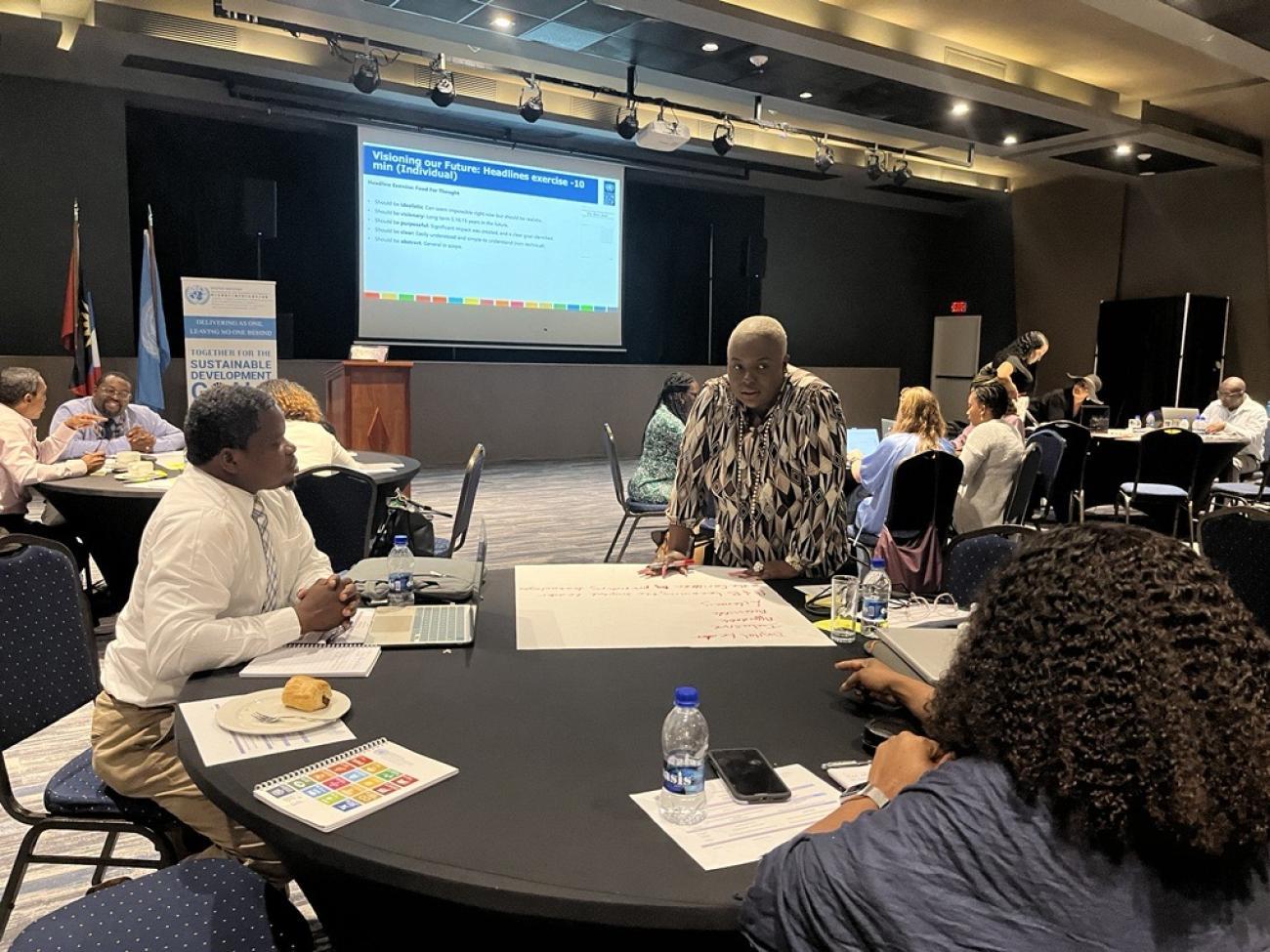New York – The Prime Minister of Antigua and Barbuda has committed to a complete digitalization of the country’s public services by 2030. This decision comes following the completion of UNDP’s Digital Readiness Assessment (DRA), which sets out actionable insights and recommendations to shape the country’s national digital strategy towards the acceleration of the Sustainable Development Goals (SDGs).
Covering five key pillars of digital transformation, the DRA focused on government, regulation, infrastructure, the digital economy, and people. Insights were combined with feedback from a range of stakeholders – including through a public survey - to provide a comprehensive diagnostic of the country’s digital progress.
The DRA highlighted that while the country’s progress on digital transformation is commendable, there is a growing demand for improving public services delivery through digitalization. For instance, establishing safe and inclusive online portals to facilitate the registration process for driver’s licenses, as well as birth and marriage certificates.
“Our ambition is to transform Antigua and Barbuda’s government and economy. We are aiming for the full digitalization of our public services by 2030, and in so doing, position the country as a hub for e-commerce and e-business,” said Gaston Browne, Prime Minister of Antigua and Barbuda.
Mr. Browne has been at the forefront of this vision, particularly the ambition to transform Barbuda into a technologically advanced community to ensure no one is left behind. In line with UNDP’s people-centric approach to digital transformation, the country’s effort will be focused on ensuring access for people with disabilities and those living in rural areas. As a host of the 4th International Conference on Small Island Developing States, Antigua and Barbuda is leading the way to ensure digital meets the needs of people in small islands with unique contexts and geographies.
In November 2023, UNDP discussed the results of the DRA with a group of stakeholders during a participatory workshop, geared at further defining the country’s national vision for digital transformation. Hosted by the Barbados and Eastern Caribbean UN country team, the workshop brought together close to 50 participants from government, private sector, civil society and the UN to exchange ideas and outline recommendations for moving forward.
“The benefits of digital transformation are becoming more evident each day, and therefore we have started to implement transformative digital projects and interventions across all areas of Government,” said Isoke Perry, acting director of the e-Government Department at the Ministry of Information Communication Technologies (ICTs), Utilities and Energy.
“In preparation for the uptake of more software and digital technologies, our digitization unit has been assisting various government offices with digitizing paper-based records, such as from the Passport Office, the Treasury Department, among others. This will drastically improve workflow, processing times, leading to faster and more data-informed decisions,” Ms. Perry said.
“As the host of the upcoming 4th International Conference on Small Island Developing States (SIDS) in May 2024, Antigua and Barbuda is well positioned to steer the digital development agenda for small islands in the Caribbean and around the world. At UNDP, we believe taking a rights-based and inclusive approach to this critical agenda will ensure delivery of society-wide impact for everyone,” said Limya Eltayeb, UNDP Resident Representative for Barbados and the Eastern Caribbean.
As Antigua and Barbuda refines its digital strategy and vision for 2030, UNDP will continue its support, including in helping the country to shape a robust digital public infrastructure with appropriate governance and safeguards to enable the provision of various services at scale.
For media enquiries:
Dwayne Carruthers, Strategic Communications Specialist, Chief Digital Office, UNDP, dwayne.carruthers@undp.org








